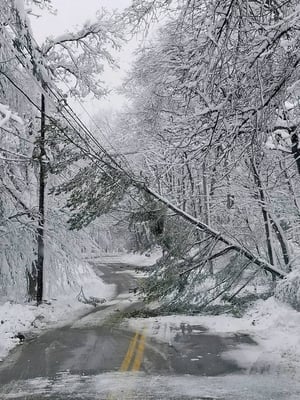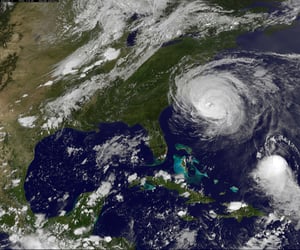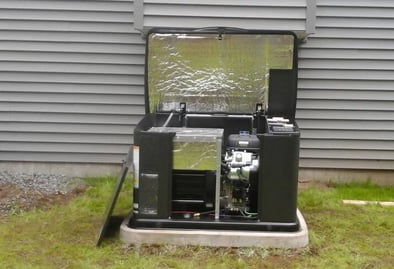New England 2020 Storm Preparation Discussion
What to do before the power goes out.
Having a home generator is all about peace of mind. It’s a powerful way to know that we’ll be protected during an outage. But good emergency preparation doesn’t end there. Before the storm hits, there’s a lot you can do to stay safe.
The following tips come from: ready.gov, a national public service campaign designed to educate and empower the American people to prepare for, respond to and mitigate emergencies, including natural and man-made disasters.
Home Emergency Kits
A well-prepared family always keeps a fully stocked emergency kit. So what exactly belongs inside it?

Food & Water, Medicine & Masks
Keep at least enough water for one gallon per person per day for at least three days (for drinking and sanitation purposes). Keep at least a three day supply of non-perishable food. Also remember your masks, medications, and personal hygiene products.
Miscellaneous Tools
Have on hand: a flashlight, a first aid kit, and batteries.
Household Items
Don’t forget important documents, a change of clothes and appropriate shoes, sleeping bags, phone chargers, matches, a can opener, paper plates, utensils and paper towels, etc.
Also make sure to evaluate your kit annually. For the full list of home emergency kit items, visit: ready.gov/kit.
 Winter Storms
Winter Storms
Major winter storms can mean major risks to your health from hypothermia, frostbite, carbon monoxide poisoning, and heart attacks from overexertion. Extreme cold, freezing rain, snow, ice, high winds, can knock out power and communications putting seniors, young children, and sick people at greater risk.
Ways to Prepare for a Large Winter Storm
- Build an emergency kit for your home AND for your car.
- Prepare your home physically --- use caulking and weather stripping, prevent your pipes from freezing, and use smoke and carbon monoxide detectors.
- Keep your gas tank full.
- When the storm hits, plan to stay off the roads and limit your time outside.
- If you have a portable generator, ONLY USE IT OUTDOORS and away from windows.
- Avoid overexertion when shoveling, as this can lead to a heart attack.
 Hurricanes
Hurricanes
Storm surge, wind damage and flooding all pose a serious threat to property and to life. With Atlantic Hurricane Season running from June 1st to November 30th, New England and Mid Atlantic residents are most vulnerable during this time.
Preparing for a Hurricane
- Know your evacuation zones and plan.
- Monitor the news and radio broadcasts.
- Keep insurance policy information and personal documents up to date.
- Clean your drains and gutters, bring outdoor furniture inside, consider building a hurricane shelter.
- Check in on your elderly neighbors ahead of time.
- Have your emergency kit ready.
The above tips represent just part of a full emergency weather plan here in the Northeast. Having a generator to deal with the loss of power is important, but so too is having your basic emergency weather plans in place.
If you already have a home standby generator...
 Schedule Generator Maintenance
Schedule Generator Maintenance
Maintaining a consistent preventative maintenance schedule is key to ensuring your generator system functions when you need it most. Maintenance should include at least one oil and filter change per year. Maintenance intervals vary from annual to monthly depending on the application of the generator equipment. Replace batteries every three years. Keep spare parts on hand in case they are unavailable, but needed during an emergency.
Exercise the generator weekly and test under building load at least one time per year. Testing under building load means simulating a power outage. It can be inconvenient, however it is the most reliable way to ensure your backup power system works properly during an actual outage.
Conduct Visual Generator Inspections
For propane and diesel fueled generators, consistently monitor fuel levels. Top off your diesel fuel tank at the time of generator service. In the winter and with impending storms, keep propane tanks filled to capacity at 80%.
Always keep your generator free from brush, trash and snow. Shovel snow from around the unit to keep the airflow clean as generators can overheat if the airflow is blocked.
Pay attention to warning lights and leaks. Make note if the generator runs outside scheduled exercise times. Alerts, exercise activity, and maintenance visits can be monitored from a remote monitoring app. Alerts can even be sent directly to your generator service provider!
Read more about protecting your home with a residential generator.

Weather Disaster Resources: